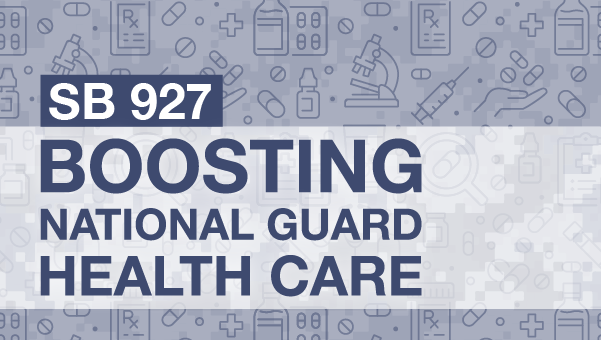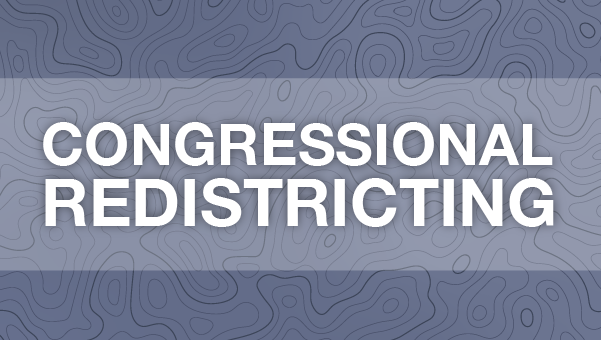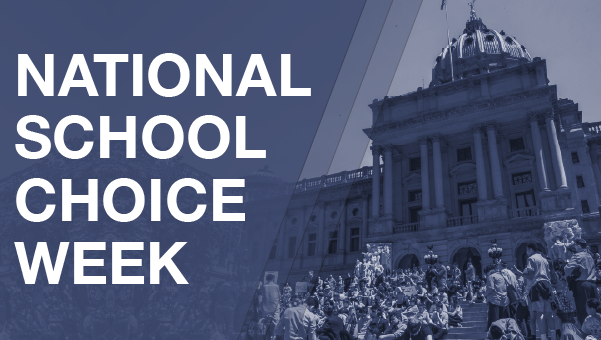
|
||||
|
In this Update:
Senate Passes New Funding for Hospitals, Health Care Workers
The Senate this week approved critical funding for hospitals and frontline health care workers who continue to keep Pennsylvanians safe during the COVID-19 pandemic. The bill was sent to the governor for enactment. It allocates a total of $225 million to hospitals and their employees. The additional dollars will be allocated as follows:
The legislation requires the funding to be directed to retention and recruitment programs for staff. Hospital executives and administration, contracted staff and physicians would not be eligible for payments. Student Loan Relief for Nurses Available through March 1
Applications are being accepted through March 1 for the new Student Loan Relief for Nurses program. Qualified nurses working through the COVID-19 pandemic may be eligible to receive student loan relief of up to $2,500 for each year of work (beginning with 2020) for up to three years, with a maximum benefit of $7,500. The Pennsylvania Higher Education Assistance Agency indicates the high volume of applications has slowed the review process, and online applications are not offered. You can learn more about the program and the application process here. Senate Acts to Improve PA National Guard Health Care
Legislation to increase the number of health care providers in the Pennsylvania National Guard was approved by the Senate. The bill was sent to the House of Representatives for consideration. The legislation improves the Medical Officer or Health Officer Incentive Program, which was created in 2014 to provide an education stipend to those who qualified through their time in the armed services. This incentive program began to address the lack of health care providers within the Guard. However, some health professionals, such as dentists and physician assistants, were inadvertently left out of the program. Senate Bill 927 would establish a broader definition of “health professional” to capture those left out of the original program. It would also create education stipend tiers based on the participant’s education level, so that physicians and physician assistants would get a higher reimbursement to help pay down their higher tuition debt. Bill to Reinforce Second Amendment Rights Sent to Governor
Earlier this week, the General Assembly sent to the governor legislation, House Bill 979, to reinforce the Pennsylvania Constitution and state law to make clear that no municipality can enact an ordinance infringing on an individual’s right to bear arms. The legislation allows a person adversely impacted by a local regulation of firearms or ammunition, where the local regulation was promulgated or enforced in violation of state law, may seek specified relief or damages attributable to the local regulation. Additionally, it amends Title 53 of the Pennsylvania Consolidated Statues – dealing with municipalities – to confirm that the laws of the Commonwealth regulating firearms or ammunition preempt and supersede any local regulation of firearms or ammunition. Some Senate Democrats argued this would cost municipalities money if they were to be sued. The truth is that if municipalities follow the plain language of the Constitutions and the laws of Pennsylvania, they won’t be sued for violating them. Firearms ownership is a Constitutional right that should not be subject to infringement or questioning. Gov. Wolf should heed the provisions of the constitutions of both the United States and Pennsylvania and sign House Bill 979. Congressional Redistricting Map Approved by General Assembly
Legislation to redraw the boundaries of Pennsylvania congressional districts to reflect changes in population was approved by the Senate and sent to the governor, who vetoed the measure. The U.S. Constitution requires congressional redistricting following the updated census count every 10 years. The preliminary congressional map was developed after a series of public hearings held by the state Senate and House of Representatives. Local Government Measures Approved by Senate CommitteeThis week I brought four bills before the Senate Local Government Committee, which I chair, with all four now awaiting consideration by the full Senate:
As chair, I continue to expeditiously advance legislation which will protect taxpayers and improve the ability of our local governments to serve their constituents. I look forward to the full Senate’s consideration of these important commonsense measures. Child Protection, Religious Liberty Bills Reported Out of Senate CommitteeThis past week the Senate Aging and Youth Committee approved three bills:
SB 936 would ensure the Department of Health continues to track and report on drug-addicted babies, something the agency was doing during the former Opioid Disaster Declaration of Emergency. HB 1737 would address a 2020 Supreme Court decision that determined current law does not provide county Children and Youth agencies with the authority to compel parents to submit to a drug test as part of investigations into child abuse allegations. HB 996 would protect the religious liberty of residents in Pennsylvania’s long-term care facilities. Growing Greener Grant Awards AnnouncedThe Pennsylvania Department of Environmental Protection (DEP) this week announced water cleanup projects throughout the state have been selected to receive funding through the state’s Growing Greener Plus program. Within the 25th Senatorial District, two projects were selected: $276,150 was awarded to the Jefferson County Conservation District’s Rattlesnake Creek Stream Improvement Project, seeking to address in-stream habitat improvements, and $382,492 was awarded to the McKean County Conservation District’s Upper Allegheny Ag. Best Management Practice (BMP) Project, seeking to install BMP to reduce agricultural runoff to streams and rivers. Growing Greener remains the largest single investment of state funds in Pennsylvania’s history to address Pennsylvania’s critical environmental concerns of the 21st century. The DEP’s portion of Growing Greener allocates grant funding for watershed restoration and protection, abandoned mine reclamation and abandoned oil and gas well plugging projects. School Food Equipment Grant Awards AnnouncedThe Pennsylvania Department of Education this week announced the awarding of competitive grants for 44 elementary, middle, and high schools in 23 counties to purchase new food service equipment for cafeterias. Of the more than $946,000 awarded statewide, the schools in the 25th Senatorial District receiving grants are:
Property Tax/Rent Rebate Applications Being Accepted
Older and disabled Pennsylvanians can apply now for rebates on property taxes or rent paid in 2021. The Property Tax/Rent Rebate Program benefits eligible Pennsylvanians age 65 and older, widows and widowers age 50 and older, and people with disabilities age 18 and older. The income limit is $35,000 a year for homeowners and $15,000 annually for renters, and half of Social Security income is excluded. After checking eligibility requirements, you can file your rebate application online by visiting mypath.pa.gov. Submitting your application online does not require you to sign up for an account. You can check the Property Tax/Rent Rebate Program instruction booklet to learn which information you will need to complete the process. National School Choice Week
Pennsylvania families should have a choice in selecting the best education for their children, including traditional public schools, public charter schools, public magnet schools, private schools, online academies and homeschooling. This is National School Choice Week, a time to stand with parents and recommit to giving parents the power to choose what’s best for their children. To advance the ability of families to have educational choices, Republicans in the Pennsylvania Senate and House of Representatives have each introduced legislation – Senate Bill 1 and House Bill 1 – that will allow every child to have access to the best schools and quality teaching, no matter the child’s ZIP code, educational needs, or income. The bills are focused on ensuring all children are given the opportunities they deserve, with the measures featuring Education Opportunity Accounts for Pennsylvania’s most vulnerable students, expansion of the existing EITC/OSTC tax credit scholarship programs, charter school reforms and innovations, equal access to the best public education regardless of ZIP code, and protections for coronavirus learning pods. The Senate last month approved three bills (Senate Bills 931 and 932, House Bill 1642 – all mentioned in my Dec. 17, 2021 Mission Report) that preserve school choice access for families and give more flexibility to students pursuing college degrees without incurring unnecessary debt. Summer STEM, Entrepreneurship Education Opportunities AvailableThe summer may seem far away right now, but it’s not too early to be thinking about what opportunities may be available to further the education of our young people in the 25th Senatorial District. Applications are now being accepted – and are due by March 4 – for the Appalachian Regional Commission (ARC) 2022 summer opportunities of The Appalachian Entrepreneurship Academy (AEA) and The Appalachian STEM Academy at Oak Ridge. In partnership with Appalachian State University, EntreEd, and STEM West, the AEA prepares the next generation of entrepreneurial leaders and thinkers, with 26 high school students from across the Appalachian Region chosen via a competitive application process to participate in experiential learning designed to cultivate creativity and develop essential entrepreneurial skills. The AEA, which will run July 9-23, 2022, at Appalachian State University in Boone, North Carolina, is for high school students currently in grades 9, 10 and 11 and attending public school or home school in any of the 52 Pennsylvania ARC counties. CLICK HERE to apply for the program. Hosted by Oak Ridge Associated Universities in Oak Ridge, Tennessee, the Appalachian STEM Academy at Oak Ridge is a residential, hands-on learning experience for Appalachia’s middle and high school students, as well as high school teachers in STEM-related fields, with the program serving as a gateway to science, technology, engineering and math (STEM) in the Appalachian Region. The program is open to both middle school and high school students in any of the 52 Pennsylvania ARC counties, with the high school student program planned for July 9-22, 2022 and the middle school student program planned for July 16-22, 2022. To apply for the middle school program, CLICK HERE; and CLICK HERE to apply for the high school student program. High school STEM teachers can also apply for the program, which is scheduled for the same time as the high school student program. Last year the ARC operated virtual programs because of COVID-19, but the commission is hopeful they will be able to return to in-person programs, though they are prepared to again host them virtually should that again be necessary. Unemployment Claim Filing TipsApplying for unemployment compensation (UC) can be a confusing process, especially for people who have not done it before, but it can also be complicated for those who must regularly file, such as seasonal workers who are dealing with different processes in the new computer benefits application program. I wanted to share some information to help anyone who needs to file an unemployment claim – CLICK HERE for a list of tips for filing a claim. |
||||
|
||||


2024 © Senate of Pennsylvania | https://senatordush.com | Privacy Policy |






